
From albatrosses soaring graceful-ly over the high seas and chicken- like Maleos digging nests deep in remote rainforests to Emperor Penguins fishing to depths over half a kilometre underwater and Peregrine Falcons nesting high on skyscrapers towering over great metropolises, birds can be found almost anywhere on earth and are a key indicator of the health of the planet.
As a world leader in conservation science, Bird Life publishes its landmark State of the World’s Birds report every four years. The document is an extraordinary summary of data tirelessly collected by researchers, conservationists and citizen scientists alike, highlighting the plight of the avian world, the key threats it faces and the urgent measures needed to protect it. Given that bird calls echo across nearly every corner of the world, it tells us about more than just the health of this extraordinarily diverse group, but also that of nature as a whole.
However, the latest edition of State of the World’s Birds paints the most concerning picture for nature yet. Nearly half of the world’s bird species are in decline, with only six per cent having increasing populations. One in eight species (or 1409 species in total) are now threatened with extinction. Nearly three billion birds are estimated to have been lost since 1970 in North America alone and a further 600 million have been lost in the European Union – an area five times smaller – since 1980.
This story is from the {{IssueName}} edition of {{MagazineName}}.
Start your 7-day Magzter GOLD free trial to access thousands of curated premium stories, and 9,000+ magazines and newspapers.
Already a subscriber ? Sign In
This story is from the {{IssueName}} edition of {{MagazineName}}.
Start your 7-day Magzter GOLD free trial to access thousands of curated premium stories, and 9,000+ magazines and newspapers.
Already a subscriber? Sign In

EXPLORING NEW HORIZONS
Keith Barnes, co-author of the new Field Guide to Birds of Greater Southern Africa, chats about the long-neglected birding regions just north of the Kunene and Zambezi, getting back to watching birds and the vulture that changed his life.

footloose IN FYNBOS
The Walker Bay Diversity Trail is a leisurely hike with a multitude of flowers, feathers and flavours along the way.
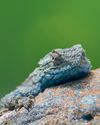
Living forwards
How photographing birds helps me face adversity
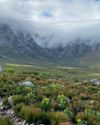
CAPE crusade
The Cape Bird Club/City of Cape Town Birding Big Year Challenge
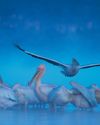
water & WINGS
WATER IS LIFE. As wildlife photographer Greg du Toit knows better than most.
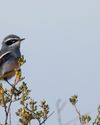
winter wanderer
as summer becomes a memory in the south, the skies are a little quieter as the migrants have returned to the warming north. But one bird endemic to the southern African region takes its own little winter journey.
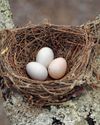
when perfect isn't enough
Egg signatures and forgeries in the cuckoo-drongo arms race

Southern SIGHTINGS
The late summer period naturally started quietening down after the midsummer excitement, but there were still some classy rarities on offer for birders all over the subregion. As always, none of the records included here have been adjudicated by any of the subregion's Rarities Committees.

flood impact on wetland birds
One of the features of a warming planet is increasingly erratic rainfall; years of drought followed by devastating floods. Fortunately, many waterbirds are pre-adapted to cope with such extremes, especially in southern Africa where they have evolved to exploit episodic rainfall events in semi-arid and arid regions. But how do waterbirds respond to floods in areas where rainfall - and access to water - is more predictable? Peter Ryan explores the consequences of recent floods on the birds of the Western Cape's Olifants River valley.
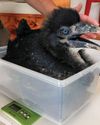
a star is born
It’s every producer’s dream to plan a wildlife television series and pick the right characters before filming.